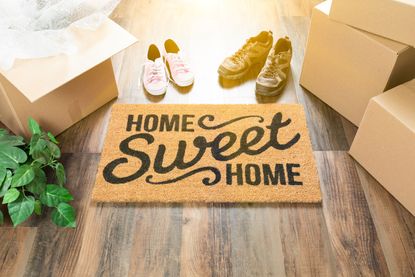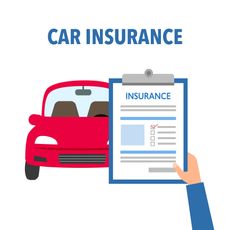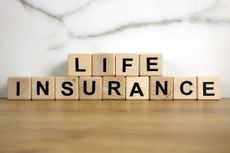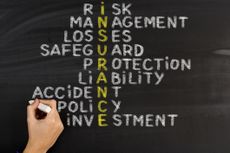The 5 Safest Cities in the U.S.
If you're looking for tranquility but with metro comforts, these five safest cities might be the thing.


Location is a key factor to consider when buying a home. Most people take into account nearby schools, restaurants, transportation options, and importantly, the safety in their prospective city. Let's face it, no one wants to live in a neighborhood with high crime rates. For this reason, whether or not an area is safe is typically a deal breaker for most home buyers.
Therefore, knowing which cities across the U.S. are the safest to live in can help you feel secure in your future home. Going abroad? Take a look at the 10 safest countries to visit.
How the safest cities were determined
WalletHub compared 182 cities in the U.S. (including the 150 most populated U.S. cities, plus at least two of the most populated cities in each state) across 41 safety factors to determine which cities are the safest. These 41 safety indicators were divided into three key categories:

Sign up for Kiplinger’s Free E-Newsletters
Profit and prosper with the best of expert advice on investing, taxes, retirement, personal finance and more - straight to your e-mail.
Profit and prosper with the best of expert advice - straight to your e-mail.
- Home and community safety: Presence of terrorist attacks, thefts per capita, murders per capita, traffic fatalities per capita, etc.
- Natural-disaster risk: Earthquake risk, flood risk, tornado risk, etc.
- Financial safety: Unemployment rate, share of uninsured drivers, poverty rate, job security, etc.
"Our country faces many threats and hazards every year," Laurie J. Holien, Homeland Security and Emergency, Management Program Director at Idaho State University told WalletHub. "The top natural hazards are usually related to extreme weather. Other public safety threats that threaten American lives and property include targeted acts of violence, wildfires, and cyber-related crimes."
You can view the full list of factors on WalletHub.com. Each factor was graded on a 100-point scale (100 representing the highest level of safety) and evaluated based on its corresponding weight. To reach an overall safety score, WalletHub determined each city's weighted average across all metrics.
These 5 cities were found to be the safest in the U.S.
1. Nashua, NH
- Overall score: 86.00
- Home and community safety: #8
- Natural disaster risk: #27
- Financial safety: #8
2. Columbia, MD
- Overall score: 85.97
- Home and community safety: #1
- Natural disaster risk: #63
- Financial safety: #85
3. South Burlington, VT
- Overall score: 85.18
- Home and community safety: #21
- Natural disaster risk: #36
- Financial safety: #1
4. Gilbert, AZ
- Overall score: 84.24
- Home and community safety: #10
- Natural disaster risk: #14
- Financial safety: #56
5. Warwick, RI
- Overall score: 84.03
- Home and community safety: #9
- Natural disaster risk: #22
- Financial safety: #68
Taking a further look at the data, here are the cities that ranked safest in each specific category. Columbia, MD ranked safest in home and community safety, Dover, DE was the safest based on natural disaster risk and South Burlington, VT ranked first in financial safety.
Least safe cities in the U.S.
The following five cities were found to be the least safe.
- Detroit, MI: Tied for most assaults per capita/ Highest unemployment rate
- Baton Rouge, LA: Tied for second most traffic fatalities per capita
- San Bernardino, CA: Second lowest overall score in home and community safety
- Fort Lauderdale, FL: Tied for second most traffic fatalities per capita/ Tied for second lowest % of households with emergency savings
- St. Louis, MO: Tied for most assaults per capita
Even in the safest locations you need to make sure you have cover for all eventualities. After all, even in a city with a low crime rate, a natural disaster (rather than a man-made one) might be the thing that upturns your domestic life. Use our home insurance tool — in partnership with Bankrate — to find the best deals available.
Related Content

Erin pairs personal experience with research and is passionate about sharing personal finance advice with others. Previously, she was a freelancer focusing on the credit card side of finance, but has branched out since then to cover other aspects of personal finance. Erin is well-versed in traditional media with reporting, interviewing and research, as well as using graphic design and video and audio storytelling to share with her readers.
-
 Charitable Remainder Trust: The Stretch IRA Alternative
Charitable Remainder Trust: The Stretch IRA AlternativeThe SECURE Act killed the stretch IRA, but a properly constructed charitable remainder trust can deliver similar benefits, with some caveats.
By Brandon Mather, CFP®, CEPA, ChFEBC® Published
-
 Three Ways to Take Control of Your Money During Financial Literacy Month
Three Ways to Take Control of Your Money During Financial Literacy MonthBudgeting, building an emergency fund and taking advantage of a multitude of workplace benefits can get you on track and keep you there.
By Craig Rubino Published
-
 What Is Comprehensive Coverage and What Does It Cover?
What Is Comprehensive Coverage and What Does It Cover?insurance This grab bag of coverages can protect you and your vehicle from theft, fire and forces of nature.
By Donna LeValley Published
-
 Tips For Open Enrollment 2023
Tips For Open Enrollment 2023Open enrollment will soon be underway, and many employers are shielding workers from hefty increases in health insurance premiums. But it pays to review your options carefully.
By Kimberly Lankford Published
-
 How Much Life Insurance Do You Need?
How Much Life Insurance Do You Need?insurance Instead of relying on rules of thumb, you’re better off taking a systematic approach to figuring your life-insurance needs.
By Kimberly Lankford Published
-
 What Is Liability Insurance and What Does It Cover?
What Is Liability Insurance and What Does It Cover?insurance Liability insurance protects you if you injure someone else or damage their property with your car.
By Donna LeValley Last updated
-
 Want to Feel Better About Life Insurance? Go Digital
Want to Feel Better About Life Insurance? Go DigitalCustomer satisfaction with life insurance and annuity products picks up substantially when participants go digital, J.D. Power survey shows.
By Kathryn Pomroy Published
-
 What Is Collision Insurance and What Does It Cover?
What Is Collision Insurance and What Does It Cover?insurance Collision insurance is often optional, but there are many good reasons to include it in your policy.
By Donna LeValley Published
-
 What Is the 80/20 Rule In Home Insurance?
What Is the 80/20 Rule In Home Insurance?The 80/20 rule in home insurance states that to receive full coverage from their insurance company, homeowners must have coverage costing at least 80% of their home’s total replacement cost value.
By Erin Bendig Published
-
 Do You Really Need Home Insurance?
Do You Really Need Home Insurance?Homeowners insurance is required by most mortgage lenders, and is included in your mortgage payment.
By Seychelle Thomas Published